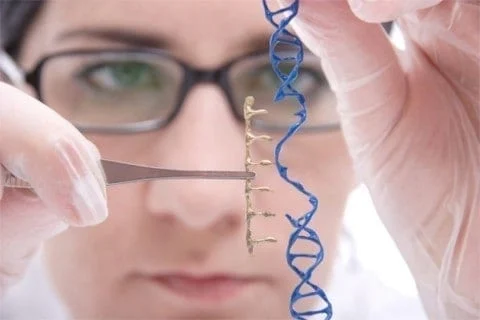Top 20 Genetic Engineer Fresher Interview Questions
Table of Contents
Top 20 Genetic Engineer Fresher Interview Questions
1. What is Genetic Engineering?
Genetic engineering is a scientific process that involves altering an organism’s genetic material, typically its DNA, to introduce desired traits or characteristics. It is used to create genetically modified organisms (GMOs) for various purposes, such as improving crop yield, developing pharmaceuticals, and advancing medical research.
2. What are the Key Techniques in Genetic Engineering?
Genetic engineering employs several techniques, including gene insertion, gene deletion, gene modification, and gene cloning. These techniques allow scientists to manipulate an organism’s DNA to achieve specific outcomes.
3. How Can Genetic Engineering Benefit Agriculture?
Genetic engineering can enhance crop resistance to pests, increase crop yield, and improve the nutritional content of crops. For example, genetically modified crops can withstand harsh environmental conditions and produce higher yields, addressing food security challenges.
4. Explain the Role of CRISPR-Cas9 in Genetic Engineering.
CRISPR-Cas9 is a revolutionary tool in genetic engineering, allowing precise gene editing by cutting and modifying DNA sequences. It has applications in gene therapy, disease treatment, and the creation of genetically modified organisms.
5. What are the Ethical Concerns in Genetic Engineering?
Genetic engineering raises ethical concerns related to genetically modified organisms’ impact on ecosystems, potential misuse of technology, and informed consent in human genetic studies. Ethical considerations are crucial in responsible genetic engineering.
6. Describe the Process of DNA Extraction.
DNA extraction is isolating DNA from cells or tissues. It typically includes cell lysis, DNA precipitation, and purification steps. This extracted DNA can then be used for genetic engineering experiments.
7. How Can Genetic Engineering Be Used in Medicine?
Genetic engineering has various medical applications, including gene therapy for treating genetic disorders, developing vaccines, and producing pharmaceuticals like insulin. It offers promising solutions for previously incurable diseases.
8. What Skills are Essential for a Genetic Engineer?
Genetic engineers need skills in molecular biology, bioinformatics, laboratory techniques, and data analysis. Strong problem-solving and communication skills are also valuable in this field.
9. Explain the Importance of Ethical Guidelines in Genetic Engineering.
Ethical guidelines ensure responsible and safe practices in genetic engineering. They protect the environment, human health, and ethical principles while promoting the advancement of science.
10. Can Genetic Engineering Help in Environmental Conservation?
Yes, genetic engineering can aid environmental conservation efforts by creating organisms capable of cleaning up pollutants, restoring ecosystems, and mitigating the effects of climate change.
11. What are the Challenges of Genetic Engineering in Humans?
Challenges in human genetic engineering include off-target effects, unintended consequences, and ethical dilemmas related to altering the human germline. Safety and ethical considerations are paramount in human genetic research.
12. Discuss the Future Trends in Genetic Engineering.
Future trends in genetic engineering include personalized medicine, gene editing therapies, and sustainable agriculture. Innovation in this area will be driven by continued technological advancements.
13. How Can Genetic Engineers Contribute to Disease Prevention?
Genetic engineers can develop diagnostic tools, vaccines, and therapies to prevent and treat diseases. Their research can lead to the identification of genetic risk factors and the development of preventive strategies.
14. Are There Any Regulatory Bodies for Genetic Engineering?
Yes, various regulatory bodies, such as the FDA in the United States, oversee genetic engineering applications to ensure safety, efficacy, and ethical compliance.
15. What Are the Prospects for a Career in Genetic Engineering?
The prospects for a career in genetic engineering are promising, with opportunities in academia, biotechnology companies, research institutions, and government agencies. Success requires lifelong learning and remaining current with technological developments.
16 Explain the Role of Bioinformatics in Genetic Engineering.
Bioinformatics plays a vital role in genetic engineering by analyzing vast biological data sets, predicting gene functions, and aiding in the design of experiments. It combines biology and computer science to extract valuable insights.
17. How Can Genetic Engineering Address Global Health Challenges?
Genetic engineering can address global health challenges by developing vaccines, therapies, and diagnostics for infectious diseases, improving food security, and advancing personalized medicine.
18. What Are the Potential Risks of Genetic Engineering in Agriculture?
Potential risks include unintended environmental consequences, the development of resistant pests, and the loss of biodiversity. Careful risk assessment and regulation are essential to mitigate these risks.
19. How Can Genetic Engineers Promote Public Awareness and Acceptance?
Genetic engineers can promote awareness through education, transparent communication, and public engagement. Ethical and safety considerations should be highlighted to build public trust.
20. Concluding Thoughts on Genetic Engineering.
Genetic engineering holds immense potential for addressing various challenges in agriculture, medicine, and the environment. Responsible and ethical practices are essential to harness its benefits while minimizing risks.




